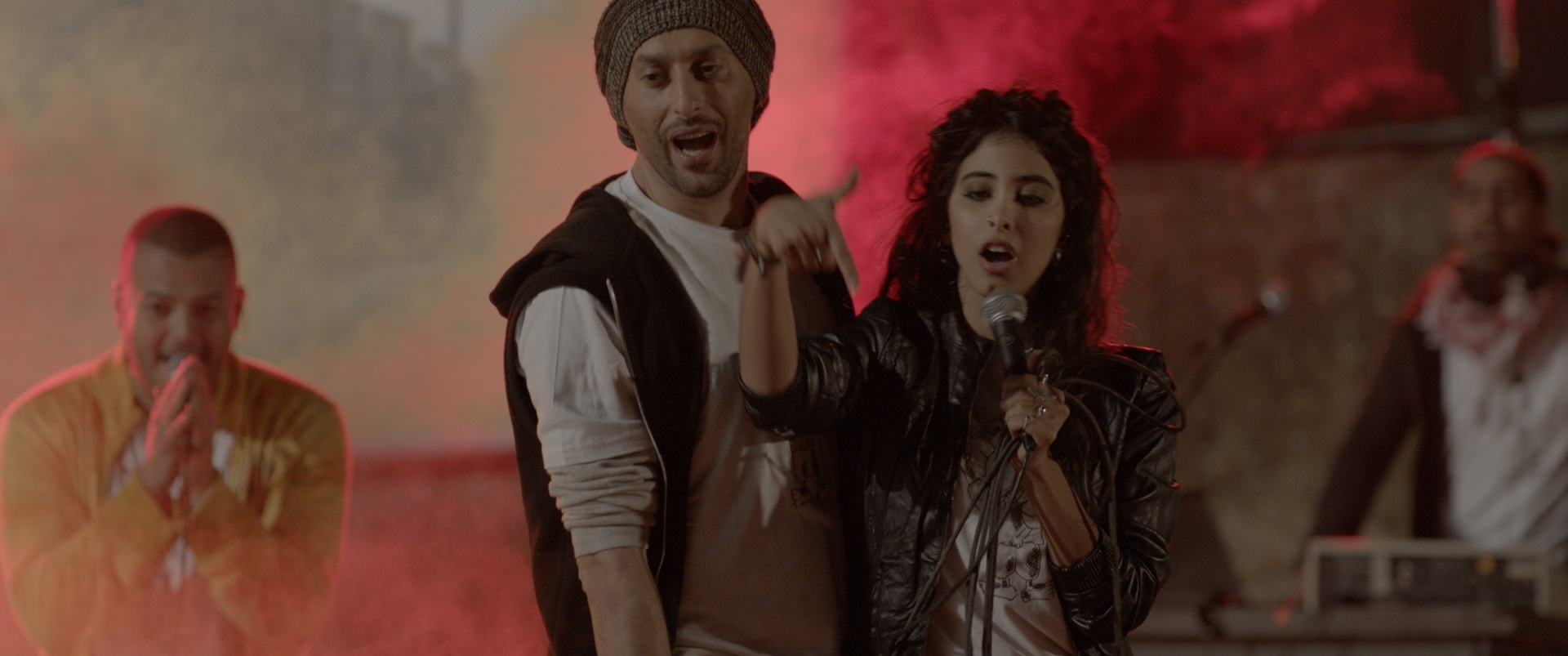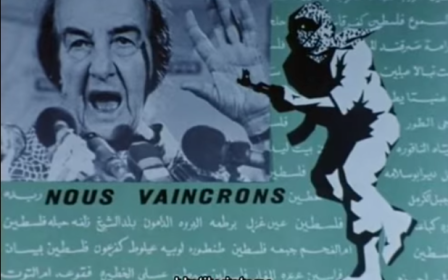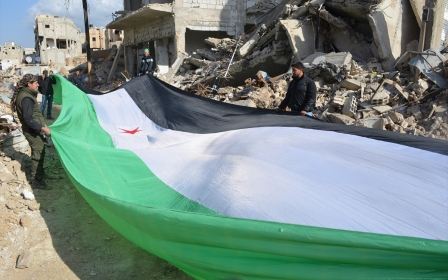FILM REVIEW: Junction 48

Junction 48 is an Israeli drama about a Palestinian rap artist called Kareem, who is played by Tamer Nafar, the frontman for rap group DAM.
The narrative centres on Kareem’s aspirations to become a well-known rap performer in Lod, a mixed Jewish-Palestinian city near Tel Aviv. His love interest Manar, played by Samar Qupty, is also an aspiring singer, but she faces a double burden - as a Palestinian and as a woman. She must confront discrimination as a woman after her photo on a poster for a hip-hop concert riles her conservative cousins who have threatened to harm her if she performs publicly. And, of course she also faces off against ethnic discrimination as a Palestinian, alongside her mostly male friends, whether it’s before violent police or racist rappers.
Israeli director Udi Aloni recently made headlines in Berlin when he called the Israeli government "fascist" at a Q&A session for Junction 48, which received the Panorama Audience Award for best fiction film at this year’s film festival. He also asked Germany to stop selling submarines to Israel and mentioned Palestinian hunger-striker Mohammed al-Qiq dying in administrative detention without being accused a crime.
What Aloni ends up saying in Berlin is that it’s not the state of Israel that is fascist, but the government. There is little to condemn or even realistically depict the government in the film: the authorities that want to demolish a home and build a coexistence museum are faceless; the police stops of young Palestinians are as arbitrary as anywhere in the world, and aren’t depicted as any more brutal; the cops’ drug bust in the beginning of the film is a gift to the entire population that sees drug running as a plague.
Even the nationalist rappers at the same club where Kareem performs aren’t particularly virulent in their racism and even a bit goofy in their violent rhetoric.
In essence, the setting - often established by the government’s own authority figures in the film - comes off as banally universal in its classism and corruption.
This is not to say that Lod itself is not besieged by corruption or negligence. In addition to Kareem, his charismatic mother, his rapper girlfriend Manar, and his friends from the neighbourhood, the city of Lod features as a prominent character in the film. Israel’s drug capital is home to a majority Jewish population alongside a minority Palestinian one.
The film opens with a drug transaction taking place through holes in the dilapidated walls of a gutted, decayed building. The garbage-strewn dirt roads and makeshift housing announce the negligence of the most violent, crime-ridden city in the country.
This is definitely not about matching Aloni’s statement at a Q&A with the film’s plot. But rather the issue is the picture of peaceful, albeit wary and watchful and distant, “coexistence” that the film conveys. A Jewish neighbour welcomes his mother in her home to “treat” her disturbed child with prayers in Arabic. The Israeli club-goers are good-natured whether they’re listening to Israeli nationalist rap in Hebrew or political rap in Arabic.
This superficial smoothness and polish are also part of the film’s larger flaws. Kareem’s father dies in a car crash, and he and his mother appear to bounce back pretty quickly. When Kareem lands a gig at an Israeli club, where Hebrew is mostly spoken and sung, the audience is immediately captivated and sold, even though most of his lyrics are in Arabic. After his first performance, he is immediately signed up for a TV interview on a popular morning show.
This is not to say there aren’t moments marking the tension of the larger political dimensions of power and authority in the film. But the opportunity to carry the tension to a point of climax is often lost.
The nationalist rappers that perform before Kareem at the club invite him and his band-mates to a party. There they sit with him in a hot tub and tell him about a humiliating incident to which one of their relatives, a checkpoint soldier, subjects a Palestinian elderly man and his son, which ends up in arrest because they didn’t comply with the soldier. The moment is tense and filled with innuendo. But the rappers come off too goofy to carry out any threat behind their words.
Moreover, Kareem is pictured in a mirror at a blurry distance, so there’s no way of registering his response at that moment. Thus, a moment that could have benefited the film by capitalising on the tension is lost - often amid the more flat and glib scenes that make up the story.
Despite the overly upbeat and smooth tone of the film, Nafar’s tense charisma shows potential beyond the film’s lost opportunities to take advantage of it.
Despite its flaws, the film’s topic of Palestinian rap and its feel-good message alone will probably draw audiences - not to mention the soundtrack, which intersperses beautifully sung Arab folk songs with Nafar's dynamic volley of Arabic, Hebrew and English rhymes.
New MEE newsletter: Jerusalem Dispatch
Sign up to get the latest insights and analysis on Israel-Palestine, alongside Turkey Unpacked and other MEE newsletters
Middle East Eye delivers independent and unrivalled coverage and analysis of the Middle East, North Africa and beyond. To learn more about republishing this content and the associated fees, please fill out this form. More about MEE can be found here.




